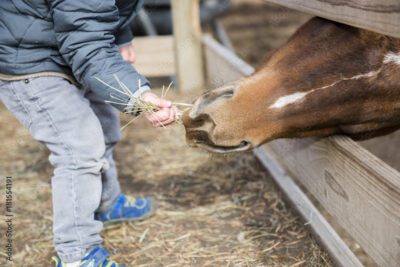By Christine Denise
Autism Mom and Contributing Writer for As You Are, a virtual clinic dramatically increasing access to early autism diagnostic services through the use of exclusively telehealth appointments
I knew very little about autism before my son received an official diagnosis at 6 years old. I spent hours online researching but what I found to be the most helpful was learning from people who had more time into their journey than I did. Reading blogs about the experiences and the thoughts and feelings of other moms brought so much comfort, hope and just the right dose of reality. Now here I am blogging about my experiences and my thoughts and feelings, which feels surreal. So if you are a parent who is just finding out that your child has autism, please know that I’ve been exactly where you are right now. I hope reading this will help you, just like other blogs helped me. Three years into our son’s autism diagnosis, here are some of top lessons I’ve learned about coping with the challenges and victories a diagnosis brings:
Milestones are mountains.
When our son wasn’t talking by the time he was 2 years old, we didn’t think we would ever be able to communicate with him. Then, we realized we would. It just wouldn’t happen the way we communicate with most people in our lives and our other children. Sign language started to help. And now, our son is learning to use an Augmentative and Alternative Communication device. It’s essentially just an iPad with an app on it that gives our son pictures to touch to say the words he wants. The first time he answered yes and no to questions I asked him, it felt like we had just reached the top of a mountain. That’s how milestones feel: absolutely momentous and will keep you feeling like you’re on top of the world. Enjoy them and treasure them.
Stay present.
I’ve touched on this topic in a previous blog, but it is worth repeating because this one took us the longest to not only realize, but to practice. Fears and worries about your child’s future, when you are too old to care for them, are very real and a heavy load to carry. The challenge for all families with special needs children is to not let your worries about your child in the future make you miss out on the child you have in front of you today. Be present for your child’s needs and accomplishments today.
The spectrum is broad.
One of the reasons why our son wasn’t diagnosed with autism until he was 5 years old is because the occupational, speech and physical therapists who worked with him didn’t think he had the signs. He maintained eye contact, so much so, that he will grab your face and forced you to look into his eyes almost as if he’s peering into your soul. Loud noises didn’t seem to bother him. And he seemed very social. The moment a specialist saw him, however, it was obvious. Yes he was social, going up to perfect strangers and giving hugs, but he showed no interest in playing with his peers or understanding social cues about personal space. He obsessed over chewing the collars on his shirts and flapped his hands to show excitement. In meeting other children with autism, it has always amazed us how different they all are. So, autism is not a one-size-fits-all diagnosis. What you read or hear about others may not apply to your child, and that’s OK. What works for some children may not work for yours, and that doesn’t mean anything other than your child is part of a broad spectrum of possibilities.
What you can’t do today, you might be able to tomorrow.
Just as much as I preach staying present and not missing out on what’s in front of you pondering the future, there are times when thinking about the future can be positive. Just like with typical children, everything is temporary with special needs children. So just because your child might not be mastering or doing something on their own today doesn’t necessarily mean they’ll never be able to do it. Our son with autism is now 8 years old. At times, especially when looking at pictures, I wish I could go back in time and tell myself how far he would come. He had a feeding tube for the first year of his life. It took what seemed like an eternity for him to get the coordination he needed to feed himself with his own hands as well as even have the drive to eat at all. Now, some of my favorite pictures are of him covered in a meal he demolished. I still worry that he isn’t using utensils and fear he may never do so. If he doesn’t, so what? And if he does, it will happen on his own time and we have to learn to be OK with waiting.
We’re not the first, the only or the last family with an autistic child.
From the moment we got our diagnosis, it felt like we were the only ones who had ever heard those words. We quickly learned how wrong we were and how reassuring it was to be able to find others who have already been down this path or who are learning just like we are. It is a challenge as our lives continue and hurdles present themselves to keep that feeling of loneliness creeping in. Sometimes, just saying the words out loud that we are not the only ones raising an autistic child in this world can help us tremendously. Suddenly, tasks like finding safe and creative ways to address our son’s oral sensory seeking needs don’t seem impossible. Finding ways to give him medication even though he won’t take a pill becomes doable and not daunting. Connect with other families with autistic children, even if it’s just joining a Facebook group in which you never post a comment, or a subscription to a publication you can read on your own terms, or diving in head first into a local support group, it will help you realize you’re not alone.
Do you have questions about your child’s development? The team at As You Are provides useful autism screening and diagnostic evaluations for kids 16 months to 10 years old via telehealth appointments.
Disclaimer: I am not a medical professional. This is a sponsored blog post, but all opinions are my own.


















